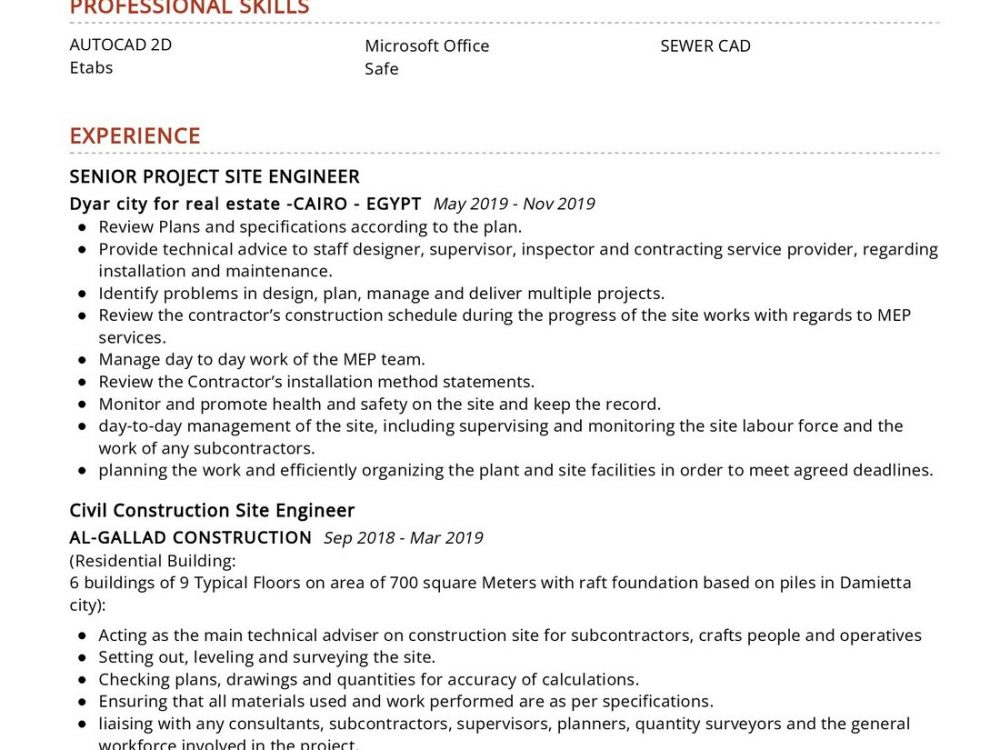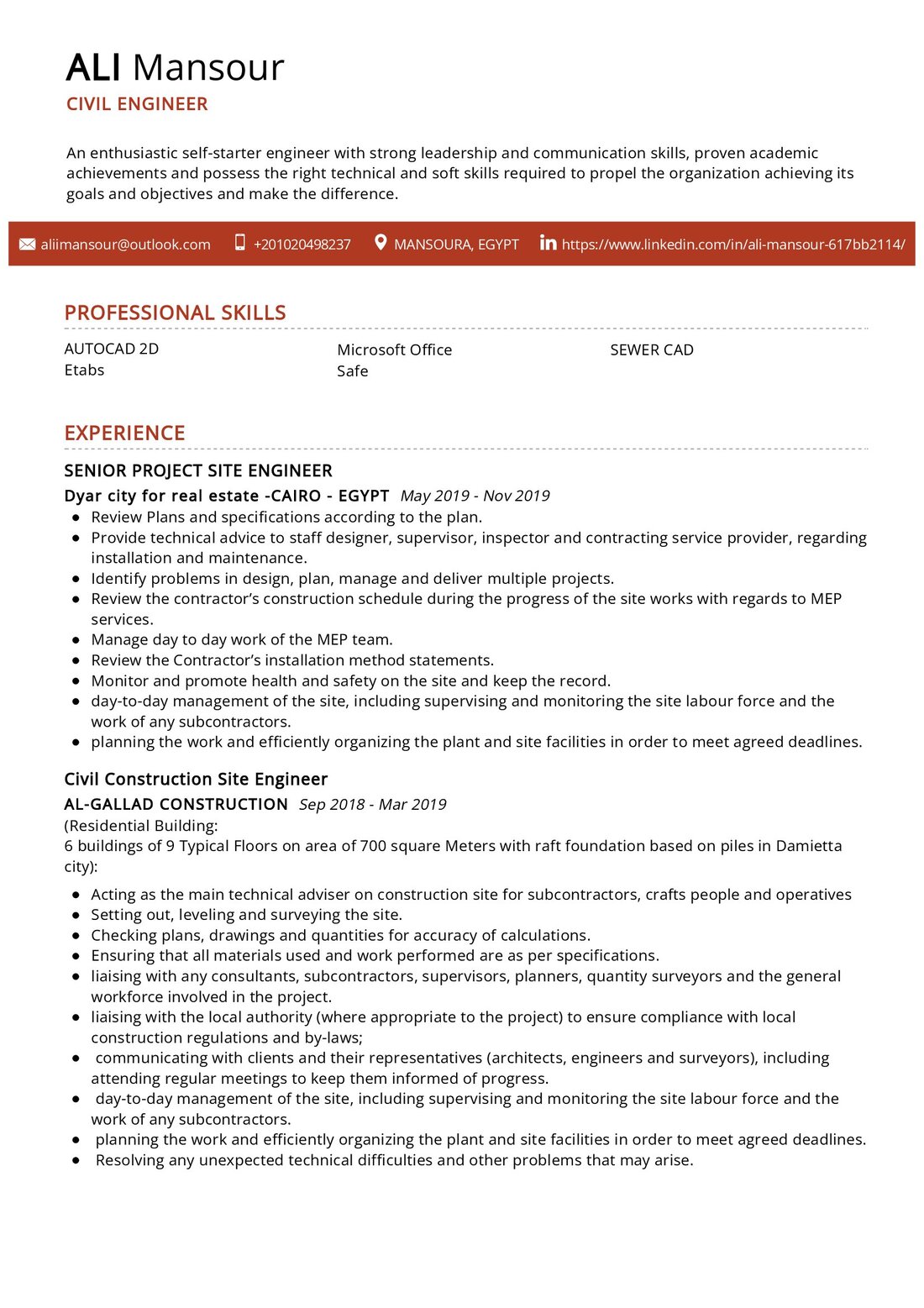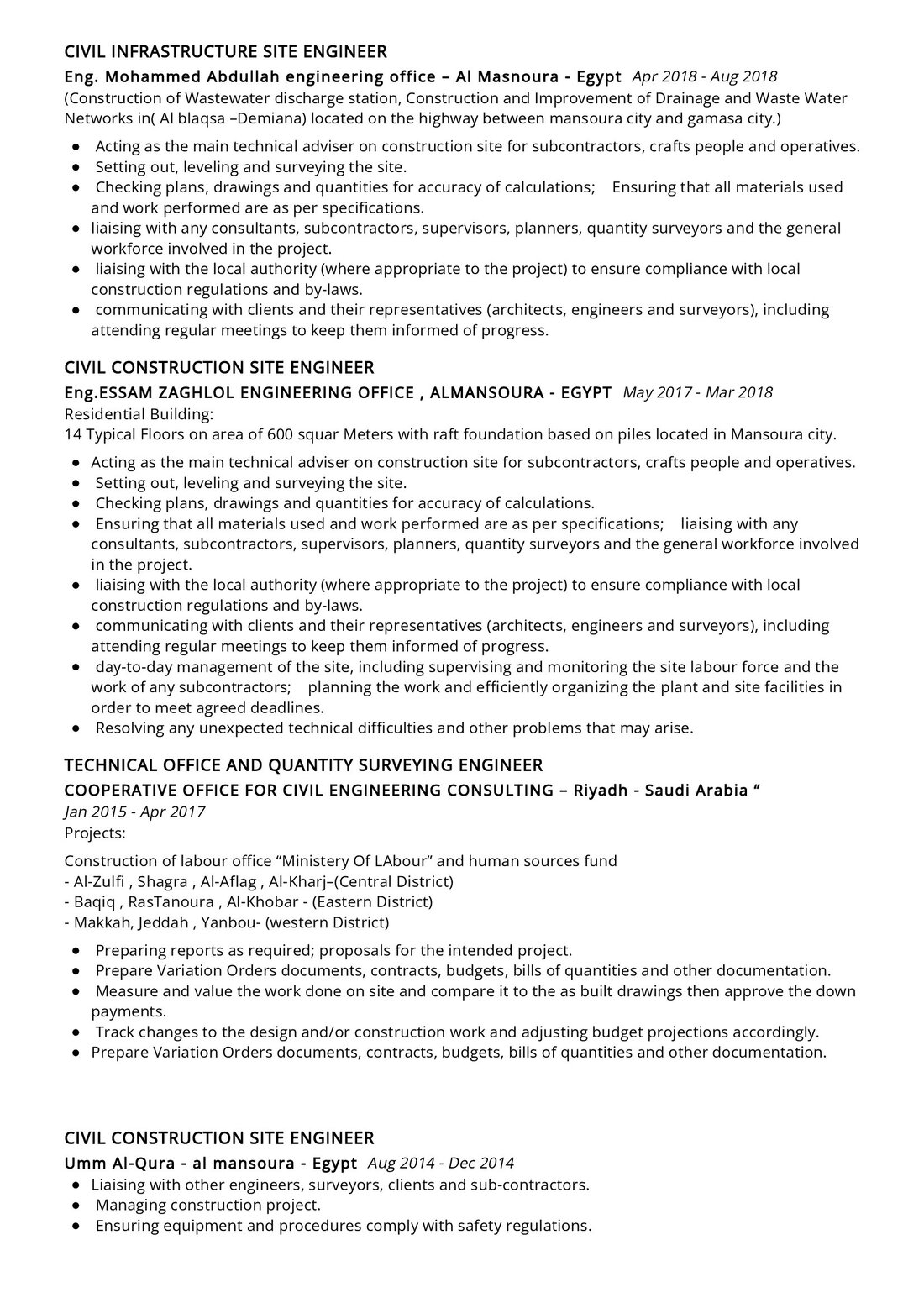What is the Role of a Civil Engineer?
In the dynamic world of infrastructure and development, the role of a civil engineer stands paramount. Civil engineers are the masterminds behind the conceptualization, design, and construction of infrastructure projects that range from highways and bridges to water treatment plants and energy-efficient buildings. Their expertise lays the foundation for communities, shaping the very structures that make modern life possible.
As a civil engineer, you are expected to have a deep understanding of the principles of mathematics and physics, coupled with a creative mind that can envision and bring to life structures that are both safe and sustainable. Your role involves collaborating with various stakeholders including architects, contractors, and government agencies to ensure that projects are completed on time, within budget, and according to specified standards and regulations.
What are the Civil Engineer Job Requirements?
Embarking on a career as a civil engineer requires a solid educational background and a set of skills honed through experience and continuous learning. Let’s delve deeper into the prerequisites that one needs to fulfill to step into the role of a civil engineer:
- A Bachelor’s degree in Civil Engineering or a related field is a fundamental requirement, laying the groundwork for your career.
- Hands-on experience through internships or entry-level positions, where you can learn the ropes and build a portfolio of successful projects.
- Proficiency in using engineering software such as AutoCAD, Civil 3D, and others that are industry standards for design and simulation.
- Strong analytical and problem-solving skills, enabling you to address complex engineering challenges.
- Excellent communication skills to articulate your ideas clearly and work effectively with multidisciplinary teams.
- A Professional Engineer (PE) license may be required, especially for senior positions, showcasing your adherence to high professional standards and ethical practices.
Further studies and certifications can enhance your profile, opening doors to more advanced opportunities in the field.
What are the Responsibilities of a Civil Engineer?
The role of a civil engineer is laden with responsibilities that are crucial in shaping the infrastructural backbone of societies. Let’s explore the myriad responsibilities that you would shoulder as a civil engineer:
- Developing detailed designs for civil projects using engineering software and drawings.
- Conducting feasibility studies to evaluate the potential of a project, considering environmental, financial, and time constraints.
- Supervising construction sites to ensure that safety standards and project specifications are adhered to.
- Collaborating with various professionals including architects, electricians, and urban planners to create cohesive and successful projects.
- Preparing budget estimates and timelines, and overseeing the allocation of resources to ensure the smooth progression of projects.
- Conducting site inspections and assessing the work performed to ensure quality control.
- Applying for and securing necessary permits and complying with legal and environmental regulations.
Each responsibility carries with it a weight of expectation, requiring dedication, expertise, and a meticulous approach to detail.
Civil Engineer Resume Writing Tips
Creating a resume that stands out in the competitive job market is a crucial step in your career journey. Here are some tips to help you craft a resume that showcases your strengths and achievements as a civil engineer:
- Highlight your educational qualifications and any specializations that set you apart in the field.
- Showcase your experience through a well-curated list of projects you have worked on, detailing your role and the impact of your contributions.
- Include any certifications or professional affiliations that attest to your expertise and commitment to the profession.
- Detail the technical skills you possess, including proficiency in specific engineering software and tools.
- Provide examples of your problem-solving abilities through anecdotes of challenges faced and overcome in your projects.
Remember to tailor your resume to the specific role you are applying for, highlighting the skills and experiences most relevant to the job description.
Civil Engineer Resume Summary Examples
Your resume summary is your elevator pitch, a concise and compelling introduction that captures your career trajectory and expertise. Here are some examples to inspire you:
- “Experienced civil engineer with a track record of overseeing successful infrastructure projects, from highways to residential complexes. Proven ability to lead teams and manage budgets effectively.”
- “Detail-oriented civil engineer with expertise in sustainable design and construction. Adept at using cutting-edge technology to create environmentally friendly and energy-efficient structures.”
- “Civil engineer with a strong foundation in structural engineering and a proven track record in delivering projects on time and within budget. Excellent problem-solving abilities and a keen eye for detail.”
Each summary should reflect your unique journey, highlighting your strengths
and setting the stage for the detailed narrative in your resume.
Create a Strong Experience Section for Your Civil Engineer Resume
The experience section is the heart of your resume, where you get to showcase your journey and the milestones achieved in your career. Here are some tips to create a robust experience section:
- Chronologically list your experiences, starting with the most recent role and working backwards.
- Detail the scope of each project you worked on, including the budget, scale, and the technologies used.
- Highlight any innovative solutions you brought to your projects, showcasing your ability to think out of the box.
- Include metrics to quantify your achievements, such as the percentage of budget saved or the scale of the projects handled.
Each entry in this section should paint a picture of your growth and the value you brought to each role.
Sample Education Section for Your Civil Engineer Resume
Your educational background forms the foundation of your career. Here is how you can structure this section:
- Bachelor of Science in Civil Engineering, XYZ University, 2015
- Master of Science in Structural Engineering, ABC University, 2017
- Certified Professional Engineer, National Council of Examiners for Engineering and Surveying, 2019
Include any additional courses or certifications that have contributed to your professional development.
Civil Engineer Skills for Your Resume
As a civil engineer, your skill set is a blend of technical knowledge and soft skills that facilitate teamwork and problem-solving. Here is a list of skills that you can include in your resume:
Soft Skills:
- Teamwork and collaboration
- Problem-solving
- Project management
- Communication
- Attention to detail
Technical Skills:
- AutoCAD and Civil 3D
- Structural analysis
- Hydrology and water resources engineering
- Construction management
- Environmental engineering
Each skill you list should be backed up with examples from your experience where you have applied them successfully.
Most Common Mistakes to Avoid When Writing a Civil Engineer Resume
While crafting your resume, avoid these common mistakes to enhance your chances of landing the job:
- Using a one-size-fits-all resume for all job applications. Tailor your resume to match the specific requirements of each job.
- Listing job responsibilities without showcasing achievements. Focus on the impact you made in each role.
- Ignoring the importance of a cover letter. A well-crafted cover letter can provide context and add a personal touch to your application.
- Overloading your resume with technical jargon. While it’s important to showcase your technical skills, ensure that your resume is readable and understandable to non-technical personnel as well.
Steer clear of these pitfalls to create a resume that truly represents your capabilities.
Key Takeaways for Your Civil Engineer Resume
As we wrap up, let’s revisit the essential elements that will make your civil engineer resume a powerful tool in your job hunt:
- Highlight your educational background and certifications, showcasing a solid foundation in civil engineering principles.
- Detail your experience with a focus on the projects you have led and the innovative solutions you have implemented.
- Showcase your skills, both technical and soft, that make you a competent and collaborative civil engineer.
- Include a compelling resume summary that encapsulates your career journey and expertise in a nutshell.
Finally, feel free to utilize resources like AI Resume Builder, Resume Design, Resume Samples, Resume Examples, Resume Skills, Resume Help, Resume Synonyms, and Job Responsibilities to create a standout application and prepare for the civil engineer job interview.
With this comprehensive guide, you are now equipped to craft a resume that not only showcases your qualifications and achievements but also tells the story of your professional journey in a compelling manner. Remember, your resume is a reflection of your career path, a testimony to your growth and readiness to take on new challenges. Best of luck!



